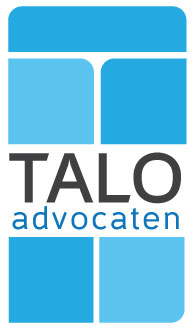Gepubliceerd op 17/04/2025
Every business faces agreements. They are the legal backbone of any collaboration, large or small. A clear agreement prevents discussions afterwards and provides guidance when the cooperation comes under pressure. Within such an agreement, certain clauses are of particular importance. In this article, we discuss five important clauses: the choice of forum clause, the personal guarantee clause, the damage limitation clause, the transfer of intellectual property rights and the tacit renewal.
- Forum selection clause
The forum selection clause determines which court has jurisdiction to settle a dispute. This seems like a detail, but in practice it can make a lot of difference. Without a clear choice, in the event of a dispute between, say, an Antwerp and a Brussels party, discussions can arise about where to litigate – resulting in delays and extra costs. Determining in advance that, for example, the court of Antwerp has jurisdiction avoids a lot of legal uncertainty.
The importance of this clause becomes even greater in an international context. Suppose a Belgian company cooperates with a Dutch supplier. If no choice-of-forum clause is included, in the event of a dispute, a dispute may arise as to which court has jurisdiction: the one in Belgium or the one in the Netherlands? By clearly stipulating in advance that, for example, the court of Antwerp has jurisdiction, you avoid complex cross-border proceedings and surprises about the applicable procedural law.
- Personal guarantee
A personal surety means that an individual – often a director or shareholder – personally guarantees the obligations of a company. This means that if the company fails to fulfil its obligations, the guarantor can be sued with his private assets. Think of an entrepreneur who personally guarantees the repayment of a business loan. Such clauses are not without risk and require thoughtful consideration.
- Damage limitation clause
A damage limitation clause contractually limits or even excludes a party’s liability. This is especially important in sectors with an increased risk of damage claims, such as IT or consultancy. A common example: an IT service provider limits its liability for data loss to the amount of the contract. Thus, it protects itself against potentially sky-high damage claims. Including a clear and balanced limitation is therefore no luxury.
- Transfer of intellectual property rights
This clause determines who owns the rights to creations resulting from the collaboration, such as texts, designs or software. Without an explicit transfer, these rights often remain with the creator, which can lead to unpleasant surprises. Suppose a freelancer designs a logo for a company, but without an assignment clause, he retains the copyrights. A simple clause in the agreement can avoid this and gives legal clarity to both parties.
- Tacit renewal
A tacit renewal clause ensures that an agreement is automatically renewed if it is not terminated in time. While this can be convenient for continuity, it also carries risks. Those who are not alert to notice periods are unwittingly stuck with a new contract period. Think of an annual subscription that is automatically extended by another year if notice is not given at least one month before expiry. Clear communication and adherence to deadlines are crucial here.
***
A solid agreement is more than a standard document – it is tailor-made. Whether it is about avoiding costly litigation, limiting liability or safeguarding intellectual rights: attention to these provisions makes all the difference. Get assistance from a legal expert to ensure that your agreement is not only watertight, but also future-proof.
Carl Dierckx
Advocaat
info@taloadvocaten.be+32 3 612 57 60
+32 3 612 57 60
Mter. Dierckx
More artikels-en


